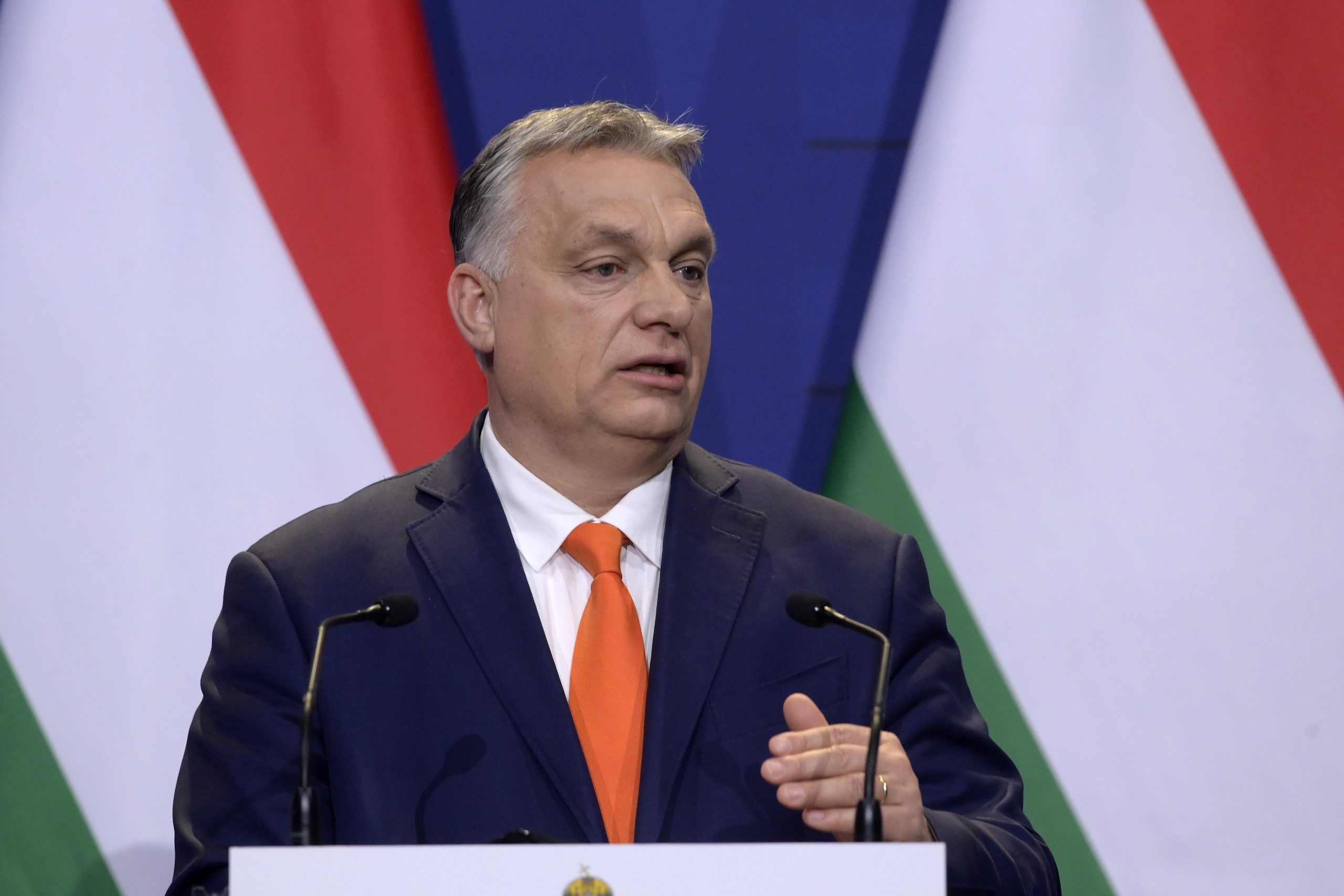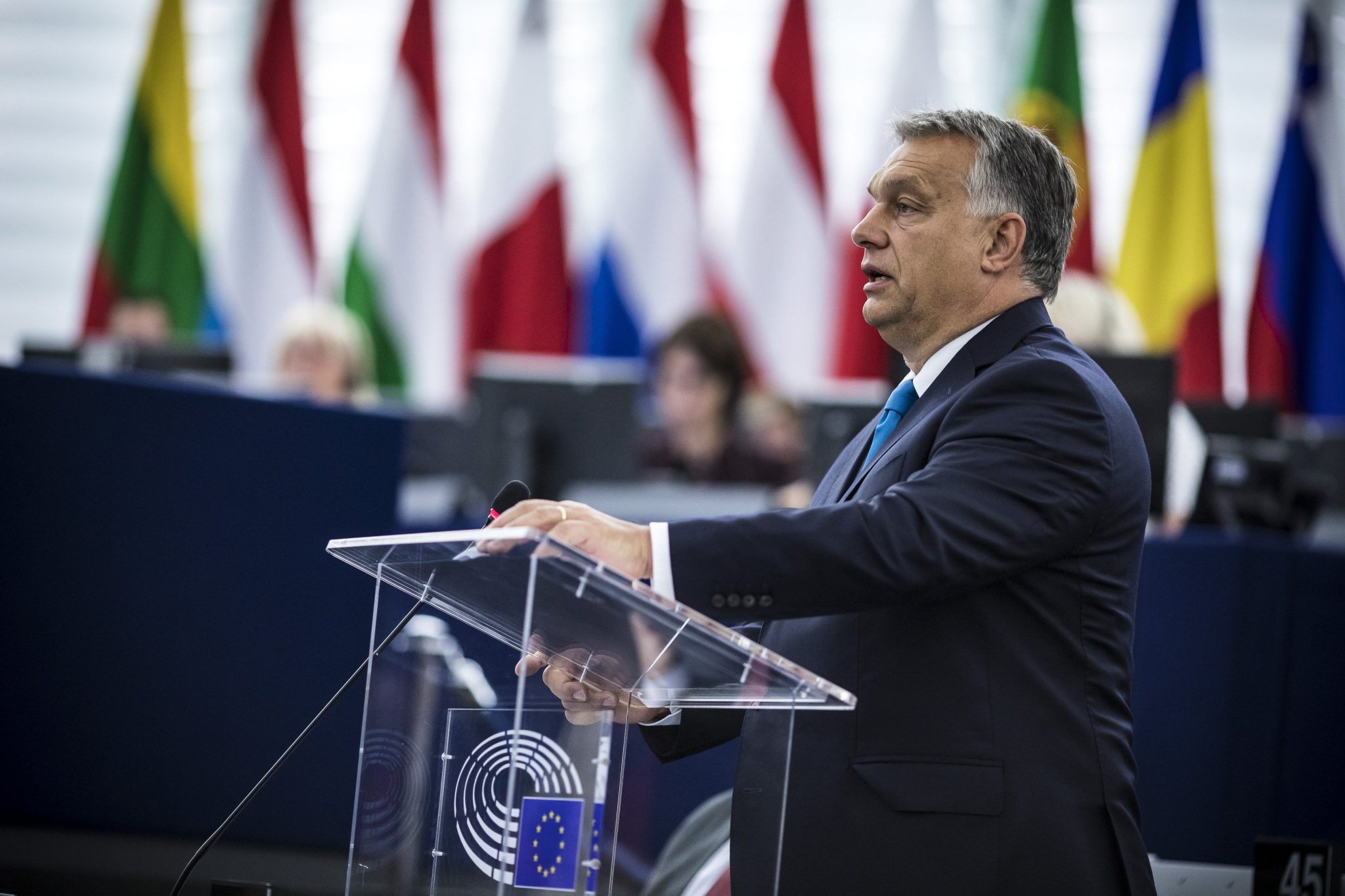
Zoltán Kovács wrote in response to a question from Reuters that the Hungarian government does not see “how a transition could be managed,” away from Russian energy supplies.Continue reading

Hungary is unwilling to support the European Union’s sixth package of sanctions against Russia, Prime Minister Viktor Orbán informed European Commission President Ursula von der Leyen in a letter acquired by the Financial Times on Wednesday. According to the Hungarian prime minister, the proposed sanctions package would not only jeopardize Hungarian energy security, but it would undermine the unity of the EU’s response to the invasion of Ukraine.
The latest proposed package of sanctions, announced by EC President Ursula von der Leyen on Wednesday, most notably targets Russian oil imports, banning them by the end of the year, while giving Hungary and Slovakia, whose reliance is particularly significant, an extension until the end of 2023 to keep them on board.
Prime Minister Viktor Orbán’s administration, however, stated rather immediately that it does not support the latest sanctions. A Hungarian veto would stop the package from going into effect, since the consensus of all Member States is required in such a motion.
Minister of Foreign Affairs and Trade Péter Szijjártó said that it is an “infrastructural reality” for Hungary to import Russian energy, and a loss of those imports “would destroy” Hungary’s energy security.
State Secretary for international communications and relations Zoltán Kovács noted that Hungary currently imports 65 percent of its crude oil from Russia through pipelines, and it would take around 3-4 years and roughly half a billion euros for the oil industry to restructure itself to an alternative source.
In an interview with HírTV last Thursday, Minister of the Prime Minister’s Office Gergely Gulyás said that the government is open to a deal, but in order to maintain unity on its approach to the war, the EU needs to be willing to negotiate. “We can show exactly how much more costly it is,” for Hungary to restructure its energy imports compared to other countries, and thus what reimbursements Hungary would expect from the EU, he said.
In his letter to President von der Leyen, according to the Financial Times, Prime Minister Orbán said the proposed sanctions would require Hungary to completely reorganize its alternative energy supply infrastructure and its refinery capacity. This process would require large, redundant, and according to him pointless investments which make their financing unfavorable, he wrote.
Prime Minister Orbán also brought up the rule of law infringement proceedings because of which the EU has withheld Hungarian EU funds. The lack of funds has an impact on Hungary’s decision on sanctions as well, since the government cannot redirect its investments into fossil fuels with funding that only exists on paper, as he put it.
A meeting between the ambassadors of the EU’s 27 Member States planned for Thursday evening did not happen, and thus the Commission is negotiating with Member States individually over the phone conversations and one-on-one discussions. The issue is a critical one, since while many countries around Europe such as Germany, Poland, Hungary, and Slovakia have been extremely reliant on Russian energy imports in the past, these payments have provided Russia with significant finances during a time of war.
While already having economic sanctions on Russia over its hostile actions against Ukraine, and providing aid to Ukraine at the same time, the EU has not enacted energy sanctions, and the costs of such imports have soared, while reliance remains in countries such as Hungary. Fossil fuels alone for the entire EU have amounted to 22 billion euros-worth of imports from Russia per month since the beginning of the war.
Russia has, for example, cut Poland and Bulgaria off of its gas supply after the EU nations refused to pay in rubles (despite the supply contracts declaring euros or US dollars as the method of payment). According to Gazprom PJSC spokesman Sergei Kupriyanov, Poland is receiving Russian gas through pipelines crossing from Italy and France into its borders, but already has 80 percent of its storage facilities full, compared with 36 percent for the whole European Union. In line with its objective to restructure its energy supply to end reliance on Russia, the EU has prioritized filling up its storage facilities and reducing energy costs.
Featured photo illustration by Balázs Szecsõdi/Prime Minister’s Press Office/MTI